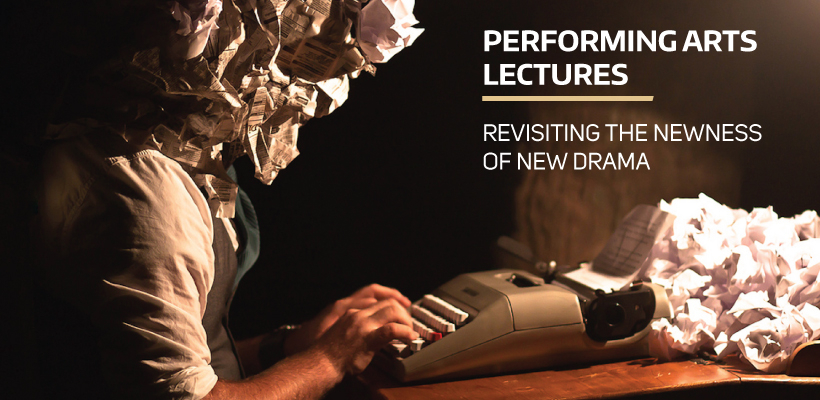For its fourth annual event, UW Drama’s 2015-2016 Performing Arts Lectures seek to engage scholars, theatre artists and administrators, and the theatre-going and drama-reading public in a discussion about the meaning of “new drama.”
The evening will consist of three 30 minute presentations followed by a reception. The featured speakers are:
Todd London, School of Drama
What's New, and Who Decides?
School of Drama Executive Director Todd London takes us on a tour of contemporary American playwriting and what we think we know about it.
Adair Rounthwaite, School of Art + Art History + Design
Citizen Action: Political Radicalism in Contemporary Performance from Serbia and Slovenia
Adair Rounthwaite examines the performance of two groups whose work of the 2000s addressed the divisive politics of former Yugoslav member states: the Janez Janšas, based in Ljubljana, Slovenia, and The Monument Group, based in Belgrade, Serbia. Both groups engage with questions of citizenship, in a way that evokes the multi-ethnic history of Yugoslavia. But their acts of mining that history don’t propose a nostalgic return to the socialist past. Rather, they aim to open political dialogue by problematizing the ethnically-identified politics of their present-day nation states.
Ellwood Wiggins, Department of Germanics
Old is the New New: Reinventing Catharsis from Bourgeois Tragedy to Post-Dramatic Theater
Every new movement in German theater since the 18th century has promised a radical break from the conventional fare served up until just recently. Remarkably, cutting-edge theorists and practitioners of the theater invariably turn to Aristotle to explain their innovations. Many of the most disparate innovators frame their avant-gardism as a return to authentic Greek tragedy. Even when someone like Brecht presents his Epic Theater as “anti-Aristotelian,” a close look at the substance of his claims reveals a striking kinship to some of the key analytical terms from the Poetics. Through the lens of one concept in particular, the controversial notion of catharsis, this lecture will trace the curious reliance on the old to stage new drama from the Enlightenment to today.
